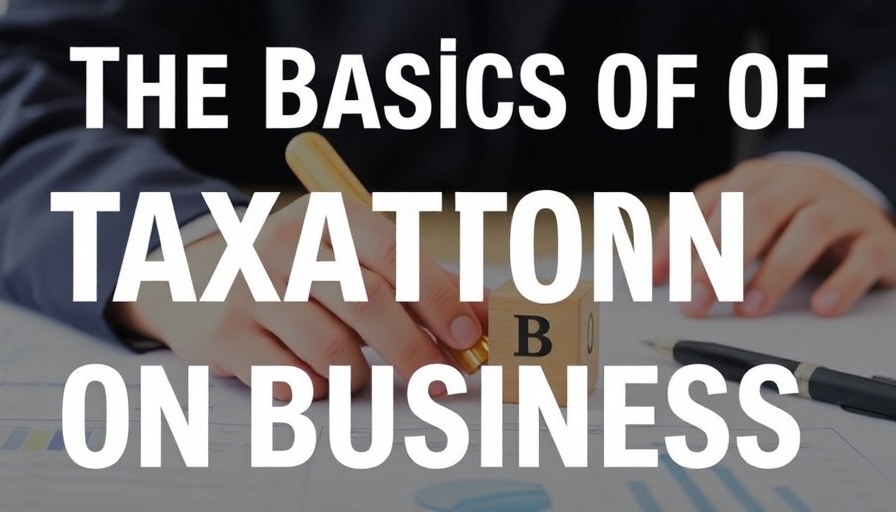
Understanding Business Taxes: What Every Entrepreneur Should Know
As small business owners, freelancers, and entrepreneurs navigate the intricate world of taxation, it is pivotal to grasp the basics of business taxes which differ depending on the structure of your business. The tax implications for sole proprietorships, partnerships, LLCs, and corporations can significantly vary, affecting your financial strategy and long-term planning.
The Five Main Types of Business Taxes
Businesses are subject to various taxes, and understanding these can help you stay compliant and optimize your tax strategy. Here are the five primary types of taxes that may apply to your business:
- Income Tax: All businesses with the exception of partnerships must file annual income taxes. Partnerships report via an information return.
- Estimated Taxes: If you earn income that isn't subject to withholding, estimated taxes must be paid throughout the year.
- Self-Employment Tax: This tax primarily covers Social Security and Medicare for those who work independently.
- Employment Taxes: If you employ others, you are responsible for withholding and paying certain taxes for your employees.
- Excise Taxes: Applicable for specific industries, these taxes can include environmental taxes or those related to specific goods and services.
Strategic Planning for Business Taxes
Proficient tax planning is essential for minimizing tax liability and maximizing business savings. According to tax experts, including GreenGrowth CPAs, you should evaluate the following strategies:
- Understanding Your Business Structure: Whether you're a sole proprietorship or a corporation, knowing how your structure affects your tax responsibilities can lead to better financial decisions. Adjusting your business structure could optimize your tax situation, especially as your business grows.
- Timing Income and Expenses: Strategic decisions such as deferring income or accelerating expenses can significantly affect your taxation. If you anticipate lower income next year, delaying income can keep you in a lower tax threshold.
- Leveraging Tax Deductions: Familiarize yourself with common deductions such as home office expenses, depreciation of equipment, or employee salaries to reduce your income tax.
Common Misconceptions and Myths
A great deal of confusion surrounds business taxes, leading to potential pitfalls for new and experienced owners alike. A common myth is that tax deductions are universally beneficial; however, the nuances of eligibility criteria and documentation requirements can complicate this. Always consult with tax professionals to ensure you are claiming deductions correctly and not missing potential savings.
Staying Informed on Tax Law Changes
Tax laws are continually evolving. Small business owners should always stay informed about new laws that could impact their financial liability and reporting obligations. For instance, changes to deductions like the Qualified Business Income (QBI) deduction can present both opportunities and challenges. Businesses must be prepared to adjust their strategies accordingly.
Final Thoughts
By understanding the basics of business taxation and planning extensively, you can position your small business for financial success. Engaging with tax professionals and staying proactive about compliance will help safeguard against unexpected liabilities.
As the year comes to a close, now is the perfect time to review your tax strategy and make adjustments to optimize your savings. Remember that taxation is not merely a yearly obligation but a continual process that can greatly influence your business trajectory.
 Add Row
Add Row  Add
Add 

 Add Row
Add Row  Add
Add 







Write A Comment